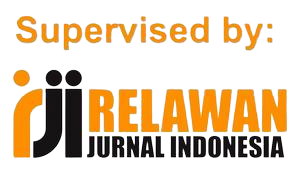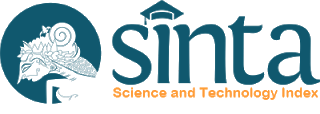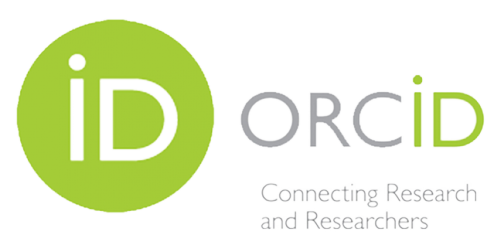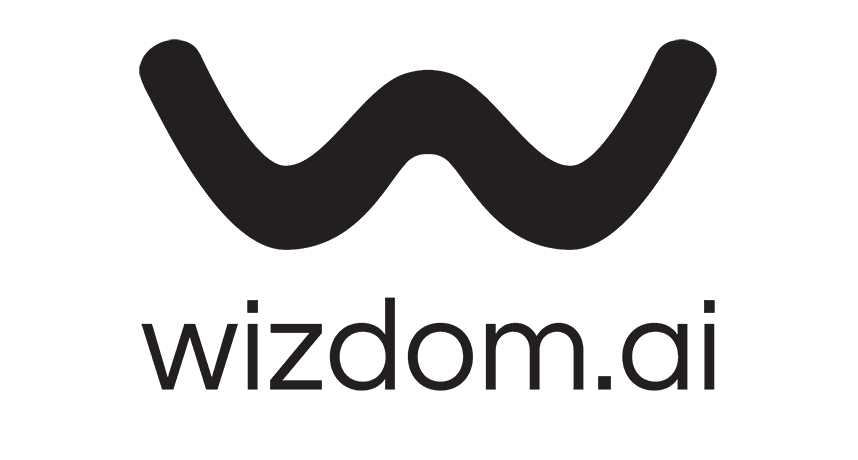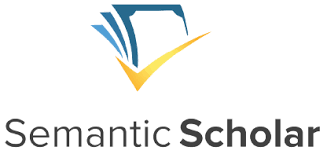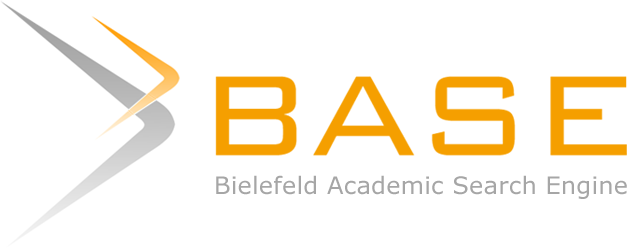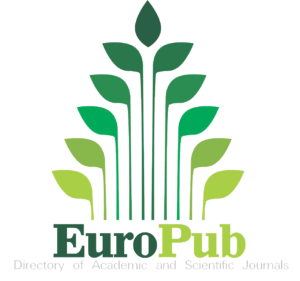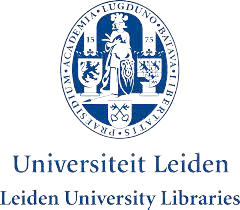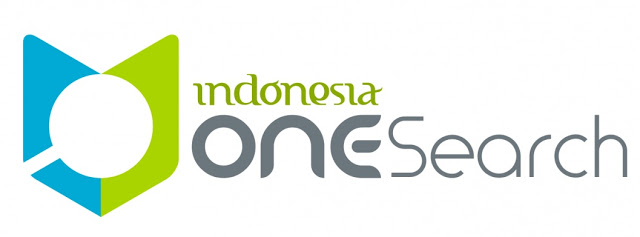Analysis of Tour Package Stimulus for Vaccine Recipients in the Pandemic Era Based on Travel Agent’s Perspective
Abstract
Keywords
Full Text:
PDFReferences
Auerbach, A. J., Gale, W. G., & Harris, B. H. (2010). Activist fiscal policy. Journal of Economic Perspectives, 24(4), 141–164.
Blanchard, O., Philippon, T., & Pisani-Ferry, J. (2020). A New Policy Toolkit is Needed as Countries Exit COVID-19 Lockdowns. http://aei.pitt.edu/103261/
BPS. (2020). Statistik Kunjungan Wisatawan Tahun 2020. In Badan Pusat Statistik (Vol. 6, Issue August).
BPS. (2022a). Jumlah kunjungan wisman ke Indonesia bulan Desember 2021 mencapai 163,62 ribu kunjungan dan Jumlah penumpang angkutan udara internasional bulan Desember 2021 naik 29,84 persen. https://www.bps.go.id/id/pressrelease/2022/02/02/1869/jumlah-kunjungan-wisman-ke-indonesia-bulan-desember-2021-mencapai-163-62-ribu-kunjungan-dan-jumlah-penumpang-angkutan-udara-internasional-bulan-desember-2021-naik-29-84-persen-.html
BPS. (2022b). Statistik Indonesia 2022 (W. Widyati, Rahmat, M. R. Syafrizal, C. A. Ardania, M. Burhan, & R. Ghaniswati, Eds.). Badan Pusat Statistik.
BPS. (2023). Domestic Tourism Statistics 2022 (Piping Setyo Handayani, Ed.). Badan Pusat Statistik. https://www.bps.go.id/id/publication/2023/07/21/d931ad07e60eec01b745dffa/statistik-wisatawan-nusantara-2022.html
Buhalis, D., & Law, R. (2008). Progress in information technology and tourism management: 20 years on and 10 years after the Internet—The state of eTourism research. Tourism Management, 29(4), 609–623. https://doi.org/10.1016/j.tourman.2008.01.005
Camilleri, M. A. (2018). Tourism Planning and Destination Marketing. In M. A. Camilleri (Ed.), Tourism Planning and Destination Marketing (First Edition). Emerald Publishing Limited. https://doi.org/10.1108/9781787562912
Choudhary, B., & Qadir, A. (2021). Impact of COVID-19 on Wellness and Spa Industry. International Journal of Spa and Wellness, 4(2–3), 193–203. https://doi.org/10.1080/24721735.2021.1986970
CNBC. (2021, July 28). 51% Perusahaan Setop Operasi, Travel Agent Nantikan Stimulus. CNBC Indonesia. https://www.cnbcindonesia.com/news/20210728134159-8-264300/51-perusahaan-setop-operasi-travel-agent-nantikan-stimulus
Dwi, N. (2020). Insentif Pajak Dalam Merespons Dampak Pandemi COVID-19 Pada Sektor Pariwisata. Jurnal Pajak Dan Keuangan Negara, II(1), 124–137. https://doi.org/10.31092/jpkn.v2i1.1008
Evans, N. (2019). Strategic Management for Tourism, Hospitality and Events. In Strategic Management for Tourism, Hospitality and Events: Third Edition (3rd Edition). Routledge. https://doi.org/10.4324/9780429437601
Fernández-Villaverde, J., & Jones, C. I. (2022). Estimating and Simulating a SIRD Model of COVID-19 for Many Countries, States, and Cities. Journal of Economic Dynamics and Control, 140, 104318. https://doi.org/10.1016/j.jedc.2022.104318
Fletcher, J., Fyall, A., Gilbert, D., & Wanhill, S. (2018). Tourism: Principles and Practices Sixth Edition. In Pearson UK (6th Edition). Pearson Education Limited.
Frank, R. (2011). Microeconomics and Behavior. Eighth Edition. In Mc.Graw. Hill International Edition (8th Edition).
Fuchs, M., & Weiermair, K. (2004). Destination benchmarking: An Indicator-System’s Potential for Exploring Guest Satisfaction. Journal of Travel Research, 42(3), 212–225. https://doi.org/10.1177/0047287503258
Gössling, S., Scott, D., & Hall, C. M. (2020). Pandemics, Tourism and Global Change: A Rapid Assessment of COVID-19. Journal of Sustainable Tourism, 29(1), 1–20. https://doi.org/10.1080/09669582.2020.1758708
Hakim, I. N., Eddyono, F., & Abdullah, S. (2022). Intensi Perilaku Berwisata Alam Masyarakat DKI Jakarta Pasca Vaksinasi COVID-19. Jurnal Kepariwisataan: Destinasi, Hospitalitas Dan Perjalanan, 6(2), 179–202. https://doi.org/10.34013/jk.v6i2.702
Hakim, I. N., Eddyono, F., & Adisuna, T. (2022). The Vaccine as a Major Factor that Improves Indonesians’ Behavioral Intentions to Travel to Natural Destinations During the COVID-19 Pandemic. International Academic Conference on Tourism (INTACT)" Post Pandemic Tourism: Trends and Future Directions"(INTACT 2022), 340–360. https://doi.org/10.2991/978-2-494069-73-2_25
Heckman, J. J., & Vytlacil, E. J. (2007). Econometric Evaluation of Social Programs, Part I: Causal Models, Structural Models and Econometric Policy Evaluation. Handbook of Econometrics, 6, 4779–4874. https://doi.org/10.1016/S1573-4412(07)06070-9
Holloway, J. C., & Humphreys, C. (2016). The Business of Tourism (10th Edition). Pearson Education.
Holloway, J. C., & Humphreys, C. (2022). The Business of Tourism. Sage.
Idris, M. (2021, November 15). Ironi Harga Tes PCR: Dulu Bayar Rp 2,5 Juta, Kini Cuma Rp 275 Ribu. Kompas. https://money.kompas.com/read/2021/11/14/133809726/ironi-harga-tes-pcr-dulu-bayar-rp-25-juta-kini-cuma-rp-275-ribu?page=all
Jamal, T., & Budke, C. (2020). Tourism in a World with Pandemics: Local-Global Responsibility and Action. Journal of Tourism Futures, 6(2), 181–188. https://doi.org/10.1108/JTF-02-2020-0014
Jordà, Ò., Singh, S. R., & Taylor, A. M. (2022). Longer-Run Economic Consequences of Pandemics. Review of Economics and Statistics, 104(1), 166–175. https://doi.org/10.1162/rest_a_01042
Jordanov, G., & Yordanova, D. (2015). Guide for the Development of Tourism Packages Based on Artificial Reefs. Innovative, Competitive and Integrated Tools for Sustainable Coastal Tourism and Inclusive Blue Growth in the Mediterranean and Black Seas, 1–60.
Kamruzzaman, M., & Hine, J. (2012). Analysis of Rural Activity Spaces and Transport Disadvantage Using a Multi-Method Approach. Transport Policy, 19(1), 105–120. https://doi.org/10.1016/j.tranpol.2011.09.007
Kardeş, S. (2021). Public interest in spa therapy during the COVID-19 pandemic: analysis of Google Trends data among Turkey. International Journal of Biometeorology, 65(6), 945–950. https://doi.org/10.1007/s00484-021-02077-1
Kemenparekraf. (2021). Stimulus Pariwisata.
Kenderdine, T., & Bucsky, P. (2021). Middle Corridor-Policy Development and Trade Potential of the Trans-Caspian International Transport Route. ADBI Working Paper Series. https://www.econstor.eu/handle/10419/238625
Khalid, U., Okafor, L. E., & Burzynska, K. (2021). Does the Size of the Tourism Sector Influence the Economic Policy Response to the COVID-19 Pandemic? Current Issues in Tourism, 24(19), 2801–2820. https://doi.org/10.1080/13683500.2021.1874311
Kotler, P., Armstrong, G., Harris, L. C., & He, H. (2020). Principles of Marketing, Eighth European Edition Pearson (8th Edition). Pearson Education.
Kotler, P., & Keller, K. L. (2019). Manajemen Pemasaran. Jilid 1. Edisi ke 13. In Jakarta : Erlangga.
Kusuma, B., Wijaya, B. K., & Mariani, W. E. (2021). Dampak Pandemi COVID-19 Pada Sektor Perhotelan di Bali. Warmadewa Management and Business Journal (WMBJ), 3(1), 49–59. https://doi.org/10.22225/wmbj.3.1.2021.49-59
Lee, G., Morrison, A. M., & O’Leary, J. T. (2006). The Economic Value Portfolio Matrix: A Target Market Selection Tool for Destination Marketing Organizations. Tourism Management, 27(4), 576–588. https://doi.org/10.1016/j.tourman.2005.02.002
Long, A., & Ascent, D. (2020). World economic outlook. International Monetary Fund, 177. https://doi.org/10.5089/9781513556055.081
Majid, M. A. A., & Chik, C. T. (2013). Assessing Customer-Based Brand Equity Theory on Repurchase Intention in the Family Restaurant. The Proceedings of International Hospitality and Tourism Postgraduate Conference (IHTPC), 207–212.
Malhotra. (2008). Fundamentals of Marketing Research. SAGE Publications Ltd. https://doi.org/10.4135/9781446261767
Malhotra, Nunan, D., & Birks, D. F. (2017). Marketing Research: an applied approach (Fifth edit). UK: Pearson Education Limited.
Mankiw, N. G. (2020). Essentials of economics. Cengage learning.
Martorano, B. (2015). Lessons From The Recent Economic Crisis: The Australian Household Stimulus Package. International Review of Applied Economics, 29(3), 309–327. https://doi.org/10.1080/02692171.2014.983052
Mason, P. (2012). Tourism Impacts, Planning and Management. In Tourism Impacts, Planning and Management (1st Edition). Routledge. https://doi.org/10.4324/9780080481418
Maulana, A. (2021). Pemulihan Pariwisata Melalui Optimalisasi Perjalanan Wisnus.
May, A. D., Shepherd, S., Pfaffenbichler, P., & Emberger, G. (2020). The Potential Impacts of Automated Cars on Urban Transport: An Exploratory Analysis. Transport Policy, 98, 127–138. https://doi.org/10.1016/j.tranpol.2020.05.007
McCabe, S., & Johnson, S. (2013). The Happiness Factor in Tourism: Subjective Well-Being and Social Tourism. Annals of Tourism Research, 41, 42–65. https://doi.org/10.1016/j.annals.2012.12.001
Mersland, R., & Thøgersen, J. (2013). Stimulating Economic Growth in the Least Developed Countries: Direct Cash Transfers for the Retired via Mobile Phones. Journal of Economic Policy Reform, 16(3), 259–271. https://doi.org/10.1080/17487870.2013.799905
Mertens, K., & Ravn, M. O. (2013). The Dynamic Effects of Personal and Corporate Income Tax Changes in the United States. American Economic Review, 103(4), 1212–1247. https://doi.org/10.1257/aer.103.4.1212
Middleton, V. T. C., & Clarke, J. R. (2012). Marketing in Travel and Tourism. In Marketing in Travel and Tourism (4th Edition). Routledge. https://doi.org/10.4324/9780080511108
Nunkoo, R., & Ramkissoon, H. (2012). Power, Trust, Social Exchange and Community Support. Annals of Tourism Research, 39(2), 997–1023. https://doi.org/10.1016/j.annals.2011.11.017
Oh, H., Fiore, A. M., & Jeoung, M. (2007). Measuring Experience Economy Concepts: Tourism Applications. Journal of Travel Research, 46(2), 119–132. https://doi.org/10.1177/0047287507304039
Pambudi, A. S., Fikri Masteriarsa, M., Dwifebri, A., Wibowo, C., Amaliyah, I., Adhitya, D., & Ardana, K. (2020). Strategi Pemulihan Ekonomi Sektor Pariwisata Pasca Covid-19. Majalah Media Perencana Perkumpulan Perencana Pembangunan Indonesia, 1(1).
Ritchie, & Jiang, Y. (2019). A Review of Research on Tourism Risk, Crisis and Disaster Management: Launching the Annals of Tourism Research Curated Collection on Tourism Risk, Crisis and Disaster Management. Annals of Tourism Research, 79, 102812. https://doi.org/10.1016/j.annals.2019.102812
Ritchie, J. R. B., & Crouch, G. I. (2003). The competitive destination: A sustainable tourism perspective. Cabi.
Romer, C. D., & Romer, D. H. (2010). The Macroeconomic Effects of Tax Changes: Estimates Based On a New Measure of Fiscal Shocks. American Economic Review, 100(3), 763–801. https://doi.org/10.1257/aer.100.3.763
Rossi, P. H., Lipsey, M. W., & Henry, G. T. (2018). Evaluation: A Systematic Approach. Sage publications. https://books.google.co.id/books?id=eDZ2DwAAQBAJ
Singarimbun, M. (1995). Metode penelitian survai.
Spalević, Ž., & Stanišić, S. (2021). Economic Growth of the Tourism Sector in the COVID-19 Pandemic During 2021. The European Journal of Applied Economics, 18(2), 1–14. https://doi.org/10.5937/EJAE18-33977
Stamboulis, Y., & Skayannis, P. (2003). Innovation Strategies and Technology for Experience-Based Tourism. Tourism Management, 24(1), 35–43. https://doi.org/10.1016/S0261-5177(02)00047-X
Stange, J., & Brown, D. (2015). Tourism Destination Management Achieving Sustainable And Competitive Results. US Agency for International Development.
Stock, J. H., & Watson, M. W. (2020). Introduction to Econometrics. Pearson.
Sugiyono. (2019). Metode Penelitian Kuantitatif, Kualitatif, dan R&D. In ALFABETA. Alfabeta.
Yoo, K.-H., Lee, Y., Gretzel, U., & Fesenmaier, D. R. (2009). Trust in Travel-related Consumer Generated Media. In Information and communication technologies in tourism 2009 (pp. 49–59). Springer.
Zandi, M. (2009). The Economic Impact of the American Recovery and Reinvestment Act. Report. January, 21. https://www.economy.com/mark-zandi/documents/Economic_Stimulus_House_Plan_012109.pdf
DOI: https://doi.org/10.36441/jamr.v4i2.2636
Article Metrics
Abstract views : 62 times
PDF views : 32 times
Dimension Citation Metrics
Refbacks
- There are currently no refbacks.
Copyright (c) 2024 Nurdiansyah Nurdiansyah, Fauziah Eddyono, Tata Sukwika
Article Metrics
Abstract views : 62 timesPDF views : 32 times
Dimension Citation Metrics
Refbacks
- There are currently no refbacks.
Copyright (c) 2024 Nurdiansyah Nurdiansyah, Fauziah Eddyono, Tata Sukwika
Refbacks
- There are currently no refbacks.
Copyright (c) 2024 Nurdiansyah Nurdiansyah, Fauziah Eddyono, Tata Sukwika
Indexing and Abstracting
Journal of Applied Management Research is indexed and abstracted in the following databases:
Cataloging
JAMR is also available on several library catalogues:

Copyright ©2021 Journal of Applied Management Research (JAMR). This work is licensed under a Creative Commons Attribution-NonCommercial-ShareAlike 4.0 International License.


